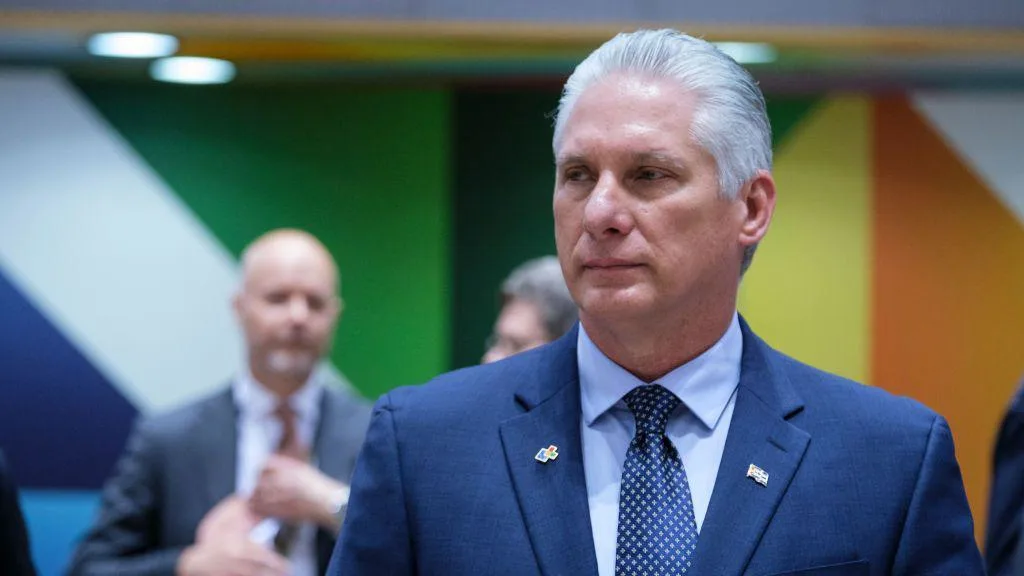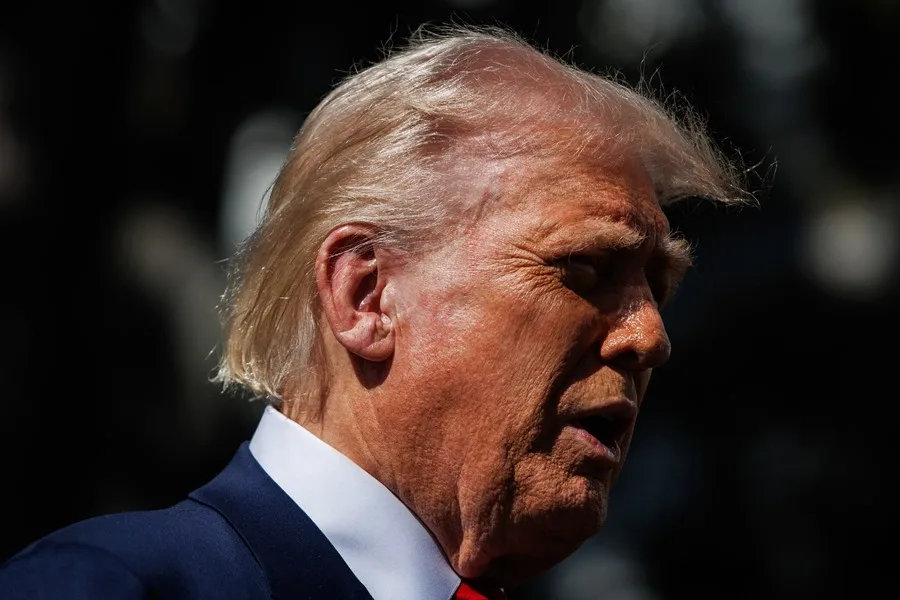International
Cuba, crisis and dollarization: without foreign exchange there is no country

The shortage of bread and rice, liquefied gas and gasoline, basic medicines and public transport, even daily blackouts. Many symptoms of the Cuban polycrisis have their origin in a common problem: the lack of foreign exchange of a state that monopolizes vast sectors of the economy.
The Liquefied Gas Company reported on Monday that it had no balitas (cylinders) until “the next import”, just one day after a freighter with 24,000 tons of wheat docked in Havana, where the manufacture of bread had been paralyzed due to lack of flour.
For weeks the queues at the service centros (gas stations) have been perpetual and many electric generation engines remain at a stop due to a shortage of imported fuel, while large areas of the country suffer blackouts of 20 or more hours a day.
“There is a critical shortage of foreign currency in the country,” Cuban economist and doctor in Public Policies Tamarys Bahamonde told EFE.
Independent experts consulted by EFE agree to start with the collapse of national agricultural and industrial production, which has skyrocketed imports, which account for 80% of what the country consumes, according to the United Nations.
In turn, the main sources of foreign exchange income – tourism, remittances, professional missions (mainly medical), sugar, the biopharmaceutical sector and nickel – have fallen significantly.
This has generated a strong imbalance in the accounts of the State, which exercises the monopoly of foreign trade and other key sectors.
“If there is no production that you can stop importing, we will not get out of this vicious circle,” says Cuban economist Omar Everleny, professor at the University of Havana.
The financial situation is such that in the middle of last year the Government began to decide on budget execution on a regular basis, depending on the actual income of each month.
The Cuban Government underlines the weight of US sanctions and the financial effects of their inclusion in the list of countries sponsoring terrorism for this crisis. The experts, for their part, highlight the internal causes (without denying the damage of the blockade or embargo).
Cuban economist Ricardo Torres, a professor at the American University of Washington (USA), talks about structural imbalances of decades and denounces a bad allocation: “More than a problem of resources, it is a problem of use of money.”
He explains that the Government has financed in the last ten years a “massive construction of hotels” – a sector in the hands of Gaesa, the army’s business consortium – despite very low occupancy rates.
“Seeing the public numbers, I come to the conclusion that it is a country in crisis, without a doubt. But with that I can’t justify that there is not even for wheat,” he says.
The consensus among the experts consulted is that 2025 will be the same or worse than 2024, in which the economy contracted. After five years of serious crisis, Cuban domestic product (GDP) is below 2019 levels.
They do not believe that the measures announced by the Government at the end of 2024, including a deepening of the dollarization of the national economy from the State, will reverse the situation.
Not without controversy, the Government has begun to charge in currency for customs procedures and higher octane gasoline, among others, in addition to converting part of its retail stores into establishments that sell in dollars.
Bahamonde sees in these decisions a copy of those that were taken in the crisis of the 1990s, and that were then reversed.
“It’s a way to raise money. Is it a long-term measure? No, will it guarantee economic development? No, what about growth? Neither. It is purely revenue, rential,” says the economist, who speaks of “subsistence economy.”
Everleny believes that many coordinated and in-depth reforms against the crisis in Cuba would be needed, something he does not perceive after the two severe adjustment packages approved in the last 15 months.
Bahamonde advocates making foreign trade more flexible, establishing a real foreign exchange market, extending participation to the private sector in domestic trade, renouncing the model of centralized administration, and eliminating Gaesa’s control over the Cuban economy, in general, and tourism, in particular.
“All solutions are medium and long-term, but people on the street need solutions today. If drastic, quick measures are not taken,… the time horizon of the resolution is moving away,” he warns.
In Everleny’s opinion, “the state needs long-term aid, like the International Monetary Fund,” because the country has already reached the point of “break”.
However, he himself does not see this option as viable because Cuba does not belong to these international organizations and because he believes that the United States would not approve financing lines for Havana.
International
Venezuela Debates Broad Amnesty Law Covering 27 Years of Chavismo

Venezuela’s Parliament began debating on Thursday a sweeping amnesty bill that would cover the 27 years of Chavismo in power, while explicitly excluding serious human rights violations and crimes against humanity.
The proposed legislation, titled the “Amnesty Law for Democratic Coexistence,” was introduced by interim President Delcy Rodríguez, who assumed power following the capture of Nicolás Maduro during a U.S. military operation.
The legislative session was convened for Thursday afternoon, with lawmakers holding an initial discussion focused on the general principles of the bill. This phase precedes a consultation process with civil society, after which the proposal will move to a final debate examining each article individually.
According to a draft of the bill obtained by AFP, the amnesty would apply to individuals accused of crimes such as “treason,” “terrorism,” and “incitement to hatred,” charges that were frequently brought against political prisoners over the past decades. The scope also includes offenses ranging from acts of rebellion to punishments imposed for social media posts or messages sent through private messaging services.
The bill’s explanatory text emphasizes reconciliation, stating that it seeks to move away from “vengeance, retaliation, and hatred” in favor of “opening a path toward reconciliation.”
However, the proposal explicitly excludes from its benefits crimes such as “serious human rights violations, crimes against humanity, war crimes, intentional homicide, corruption, and drug trafficking.”
These exclusions, the text notes, are based on strict compliance with the Venezuelan Constitution, which already prohibits granting amnesties or pardons for such offenses.
International
Díaz-Canel Calls for Talks With Washington Without Pressure as U.S. Tightens Oil Sanctions

Cuban President Miguel Díaz-Canel said on Thursday that his government is willing to engage in dialogue with the United States, provided that talks take place on equal terms and without pressure.
“Cuba is prepared to hold a dialogue with the United States on any issue that either side wishes to discuss,” Díaz-Canel said during a press conference broadcast nationwide on radio and television.
He stressed, however, that such dialogue would only be possible “without pressure, without preconditions, on the basis of equality, and with full respect for our sovereignty, independence, and self-determination.” The Cuban leader added that discussions should avoid issues that could be interpreted as interference in the country’s internal affairs.
Díaz-Canel’s remarks come at a time when Cuba is facing growing pressure from the administration of U.S. President Donald Trump, which has implemented a series of measures that have restricted the island’s access to fuel needed to generate electricity.
Washington has sought to prevent Cuba from receiving oil from Venezuela, its main ally for more than two decades, and has stepped up pressure to reduce crude shipments from Mexico. In addition, Trump signed an executive order in late January allowing the United States to impose tariffs on countries that sell oil to Cuba.
In that order, the U.S. president declared that Cuba represents an “unusual and extraordinary threat” to U.S. national security and foreign policy, accusing the island of aligning itself with hostile countries and actors.
International
HRW Warns Trump’s Influence Has Weakened Human Rights in Latin America

Human Rights Watch (HRW) warned that the political influence and rhetoric of U.S. President Donald Trump have contributed to a deterioration of human rights conditions across Latin America and the Caribbean. In its World Report 2026, the organization stated that several governments in the region have committed abuses against migrants and citizens, or have used U.S. policies as justification to impose harsher repressive measures.
During the first year of Trump’s new term, HRW observed that multiple countries violated the rights of foreign nationals under direct pressure from Washington. Other governments deepened security strategies based on militarization, mass detentions and excessive use of force, according to the report.
“The impact of the Trump administration has undoubtedly been negative in Latin America and the Caribbean,” said Juanita Goebertus, HRW’s Americas director. However, she emphasized that “governments in the region remain responsible for defending democracy and fundamental rights, regardless of who is in power in Washington.”
HRW also reported that the United States significantly reduced cooperation funding for human rights organizations and independent media. At the same time, countries such as El Salvador, Peru and Ecuador passed laws allowing the arbitrary closure of civil society organizations and media outlets, weakening democratic systems and institutional checks and balances.
The organization further criticized what it described as a “double standard” in U.S. foreign policy, which condemns human rights violations in Venezuela, Cuba and Nicaragua while overlooking serious abuses committed by allies such as El Salvador, Peru and Ecuador. The report also included criticism of the U.S. military attack against Venezuela in early 2026, warning that it could strengthen Nicolás Maduro’s regime and respond primarily to U.S. political and commercial interests.
-

 International2 days ago
International2 days agoEpstein Denies Being ‘the Devil’ in Newly Released Video Interview
-

 International3 days ago
International3 days agoSpain Seeks to Ban Social Media Access for Children Under 16
-

 International3 days ago
International3 days agoMexico to Send Humanitarian Aid to Cuba Amid U.S. Threats Over Oil Shipments
-

 International3 days ago
International3 days agoPetro Resumes Extraditions, Sends Top Criminal to U.S. Before White House Talks
-

 International3 days ago
International3 days agoMexico Arrests Suspect in Shooting of Sinaloa Lawmakers
-

 International2 days ago
International2 days agoHypothermia Linked to Most Deaths During New York’s Recent Cold Spell
-

 International2 days ago
International2 days agoDelcy Rodríguez Takes Control of Chavismo as Venezuela Enters a U.S.-Supervised Transition
-

 International2 days ago
International2 days agoHRW Warns Trump’s Influence Has Weakened Human Rights in Latin America
-

 Central America4 days ago
Central America4 days agoCosta Rica Goes to the Polls as Voters Choose Continuity or Change
-

 Central America3 days ago
Central America3 days agoLaura Fernández Says She Will ‘Never’ Allow Authoritarianism in Costa Rica
-

 Central America10 hours ago
Central America10 hours agoPanama Will Not Be Threatened, President Says Amid Rising Tensions With China
-

 International10 hours ago
International10 hours agoDíaz-Canel Calls for Talks With Washington Without Pressure as U.S. Tightens Oil Sanctions
-

 International10 hours ago
International10 hours agoVenezuela Debates Broad Amnesty Law Covering 27 Years of Chavismo
-

 International3 days ago
International3 days agoNFL Investigating Emails Linking Giants Executive to Jeffrey Epstein
-

 Central America10 hours ago
Central America10 hours agoBukele’s Approval Rating Climbs to 91.9% in El Salvador, Survey Shows


























